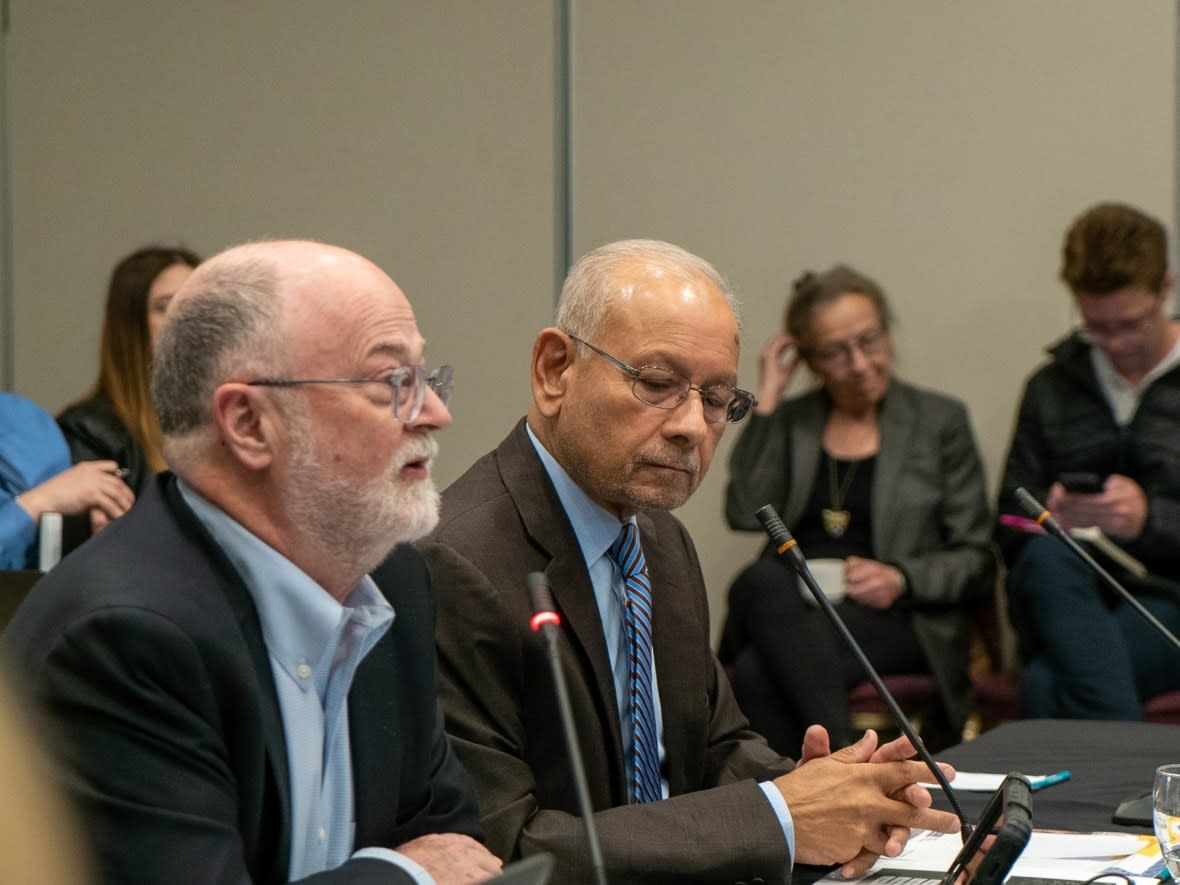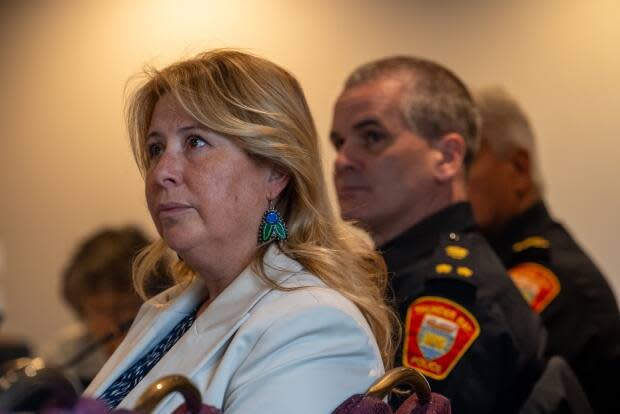Thunder Bay police board administrator's 2-year term ends, report recommends that local control resume

The Ontario Civilian Police Commission (OCPC) has officially ended the term of Malcolm Mercer as administrator of the Thunder Bay Police Service Board (TBPSB), with his report recommending that the board resume local control.
The OCPC released Mercer's seven-page report on Friday. It details his time as administrator, after coming on board in April 2022 during a particularly troubled time for the board and Thunder Bay Police Service (TBPS), and includes recommendations for next steps.
"As the commission's mandate has been completed, the administrator's term has now come to an end," the OCPC said in a statement.
"The commission would like to thank Mr. Malcolm Mercer for his thoughtfulness and integrity in working with the police service and its civilian oversight."
The OCPC said it believes the structures are in place for the board to independently handle police oversight in the northwestern Ontario city. Mercer hasn't had a vote on the board since June 30, 2023.
Karen Machado, chair of the TBPSB, also thanked Mercer, saying in a statement that his guidance helped create "a foundation for the work that our board is now undertaking."
"We are committed to listening to the communities we serve and implementing the necessary policies and accountability mechanisms to ensure there is a strong system of police governance."
The conclusion of Mercer's term comes after renewed scrutiny of the TBPS. In recent weeks, Ontario Provincial Police laid charges against the service's former chief and former lawyer, and First Nations leaders in the region called for the force to be disbanded.
At the time of Mercer's appointment:
The OCPC was investigating the conduct of former police chief Sylvie Hauth and Deputy Chief Ryan Hughes.
Hughes was suspended and the OCPC was asked to assign an outside police service to investigate misconduct allegations against him.
A board member, Georgann Morriseau, made public allegations of misconduct against other board members, Hauth and Hughes, and filed complaints to the Human Rights Tribunal of Ontario about their alleged conduct toward her.
Hamilton police were investigating allegations by Staff Sgt. Mike Dimini against other members of the service.
The OPP was investigating allegations of criminal misconduct involving members of the service.
Since then, the OPP has charged Hauth and former police lawyer Holly Walbourne with obstruction and breach of trust, and Dimini with assault and breach of trust.
Hughes was reinstated in 2023 after most of the allegations against him were determined to be unfounded and he remains as deputy police chief.
Mercer also oversaw the reconstitution of the board and the hiring of Darcy Fleury as chief of police last year.

In his report, Mercer noted that much of the dysfunction on the police board distracted from its work implementing the OCPC report headed by Sen. Murray Sinclar and the 2018 report that found systemic racism within the service.
"There was obvious division within the board," Mercer wrote. "The board had not materially addressed the recommendations that had been made by Murray Sinclair after his investigation on behalf of the OCPC. This may have been because of the difficult circumstances in which the board found itself."
He said he believes the reconstituted board and Fleury are on the right track and are functioning properly, but noted there remain differences of perspective between Indigenous and non-Indigenous members.
"The Indigenous members best understand the effect of history, and disadvantage and the pressing need for policing in Thunder Bay to be trusted by, and to fully protect Indigenous people," he said. "The non-Indigenous members are supportive but do not have the same practical insight."
He said non-Indigenous members are "particularly concerned about Thunder Bay's reputation and the costs of the service and the board."
Despite this, he feels these differences can be reconciled and it is ultimately time for local control.
"There is much work to be done by the board and service," he said. "While my appointment assisted in bringing some stability and progress, it is important and proper that civilian oversight be fully returned to people in Thunder Bay."


